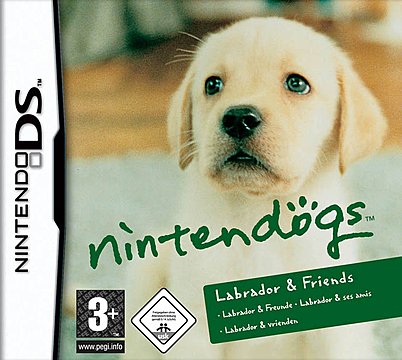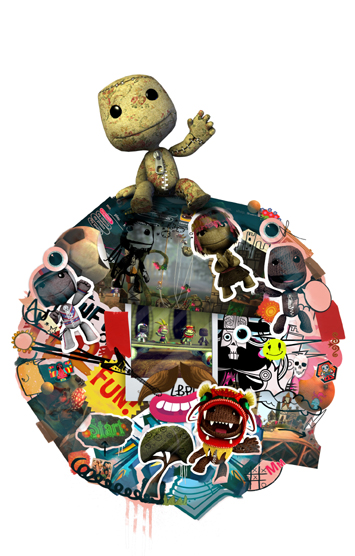This week we had the opportunity to learn more about Games based learning in the Primary school and the way in which games can be used to enhance learning and teaching within the classroom. We heard from a number of speakers and we were informed of studies conducted using Guitar hero, Nintendogs and Dr Karwashimas brain training software within schools and the impact this had on children's learning as a result of incorporating games based learning in the curriculum.
Games based learning is something we learned a bit about in first year but was something I did not feel I fully understood how to use in the classroom but something in which I was interested in finding out more about and trying this out with a group of children. We had the opportunity to observe another student's work where she had done a games based learning context in an early stages contexts and from this I could see clearly the benefits of this but felt as though I wanted to learn more about this approach to teaching and learning and try it out for myself to see how well I thought it worked. But to start with, I wanted to know what actually is Games based learning? Through taking part in this elective and in particular through learning about Games based learning in relation to Guitar hero, I have learned that games based learning is not simply about children playing games but using a game as a context where all areas of the curriculum can be brought out from a taught. In this sense children could be doing language which has come from a guitar hero context where they have to create posters to try and persuade people to come along to a gig the band are doing. Other areas of the curriculum can also be taught by using the game as a focus and considering how you could use it in other subjects. Use of contexts is something which I believe is truly reflective of Curriculum for Excellence principles (Scottish Government, 2009) as it allows for breadth through areas being taught across the curriculum through the context and also relevance in relating all areas and work the children to do to a context making what they are learning more meaningful to the children.
Buckingham (2007) discusses the use of computer games in particular arguing that not only using the game as a context but allowing children to play the game, can help children develop in areas such as thinking skills, problem solving and planning strategies. He also draws upon the social element of children playing games with others as they have to communicate to each other what they are doing and collaborate as a team to meet their end goal. Upon reading this I realised that playing games can be sociable if you get children to play a game which has more than one player. Before learning about games based learning it was not an approach I had ever really considered as I knew a number of games are deemed inappropriate for children of a certain age and I thought a number of children go home and spend hours in front of a computer at home so never really saw the benefit of using games consoles in school. From my experience before hand I had seen the impact on those who play computer games independently on a regular basis and the way in which social interaction was lost really put me off computer games. However through listening to the studies done on these three pieces of games software, learning how you can use these in the classroom and looking at the results of these studies my eyes really have been opened to the possibilities of Games based Learning and what this can bring to the classroom. One thing in particular which as inspired me is the element of collaboration which I have now learned can be present in playing computer games. I think this could work really well in a class where children are not very good at working with others as they could be encouraged through being put in groups with different people to play the game. In group games children may have to all stick together which encourages children to collaborate, co-operate and really encourage each other through helping one another and being patient with those who take more time to get to know the game. An example of one of these games where children have to work as a team is Little big planet. This was a game we learned about in first year through another student who had used games based learning in an early stages classroom.


The game I have chosen to reflect on is the use of guitar hero in the classroom. As game, this is one I was familiar with which meant when we were learning about the study conducted using this in schools, I felt I was able to understand quite easily how this was used. In this study, Guitar Hero was used as context to try and help pupils with the transition from primary to secondary which for a number of children can be quite daunting. The aim of this study was to get children involved with other children from different schools to get to know them before going to their new school. The way this was conducted was children were put into bands which included children from a range of schools and they had to work together to do a range of tasks for the band as well as play together as a band. The Guitar hero game was used as a context which meant children did maths, language, art and so forth which related to the Guitar hero context. The idea was for this to be embedded across the curriculum to encourage children to get to know others to help make their transition from primary to secondary as smooth as possible.
There were three main phases involved in this project
1) Guitar hero was used as a context for learning in Primary seven
2) All of the Primary seven pupils were to visit the secondary school for a transition day to participate in a number of Guitar hero related activities
3) Guitar hero to be used in secondary school. Teachers to use it as a context for their new classes acorss the curriculum
During this session, as mentioned we also learned about other games software which is being used in schools to create contexts to try and enhance teaching and learning in the classroom. One piece of software, Dr Kawashima's Brain training is referred to by iTeach ICT at http://iteach-ict.blogspot.com/. She draws upon a recent study conducted in schools which used this games software and draws upon the results of using this game on children's mathematical abilities.
Buckingham, D. (2007) Beyond technology: Children's learning in the age of digital culture. Cambridge: Polity Press.
Scottish Government (2009) Curriculum for Excellence: Principles for Curriculum Design.
Available online:
http://www.ltscotland.org.uk/understandingthecurriculum/howisthecurriculumstructured/principles/index.asp
[Accessed 10/02/12]





Do you think there are arguments against GBL?
ReplyDelete